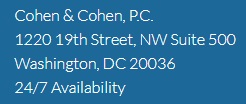Being involved in a car accident can be an extremely stressful and confusing time for the victims who are often left to deal with injuries, medical bills, lost wages, and more. Fortunately, there is often insurance in place to help those involved in an accident deal with monetary losses. Other times, however, an uninsured driver may be at-fault for a car accident which can change how a personal injury case proceeds.
The first thing that drivers and passengers should know is that simply because they are involved in an accident with an uninsured driver does not mean that they don’t have legal recourse. Many states require “Uninsured Motorist” protection be a mandatory part of any auto policy sold within that state.
This coverage, often referred to as “UM”, applies in situations in which the at-fault driver is uninsured. In essence, by paying your own insurance premium, your insurance company agrees to stand in the shoes of the uninsured driver thus you may be able to make a claim against your own policy. However, depending on the laws of your particular state and the language in your auto insurance policy, UM cases often require different information and evidence be presented in order for such a claim to be honored.
After calling the police and tending to any immediate injuries, following are the top three things you should do and consider following an accident with an uninsured driver:
1. Get as much information as you can about the other driver at the scene of the accident. Regardless of the type of case, you can never have “too much” information however, details are crucial in UM cases. Some policies will not even entertain an uninsured motorist claim if there is not enough information about the uninsured driver as a lack of information can prevent the insurance company from recouping its payments from the uninsured driver. If possible, take a photo of the driver, his or her license, and any other identifying information you see. Obtain as much witness information as well.
2. Get detailed information about the car itself that was involved in the accident. This can be important as the owner of the car may be different than the driver and the owner might have other applicable insurance elsewhere. If possible, take pictures of the car, the license plate, and the VIN number.
3. Speak with a Des Moines personal injury attorney who is experienced in uninsured motorist cases. He or she will be able to tell you whether or not your own policy provides uninsured motorist protection and what the limits of said coverage are. Your lawyer will then analyze your evidence, as it pertains to uninsured motorist claims, and guide you through the insurance and legal process.
The list above is not exclusive and we strongly suggest that if you have been the victim of a car accident involving an uninsured motorist, contact us today.
Thanks to our friend and blog author, Christopher A. Johnston of Johnston Martineau, LLP, for his insight into uninsured motorist.

